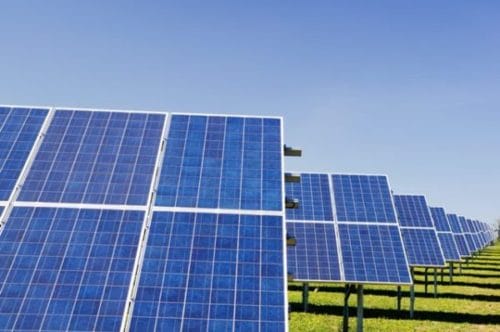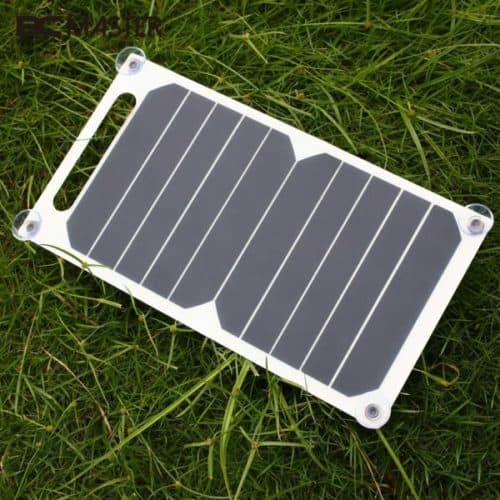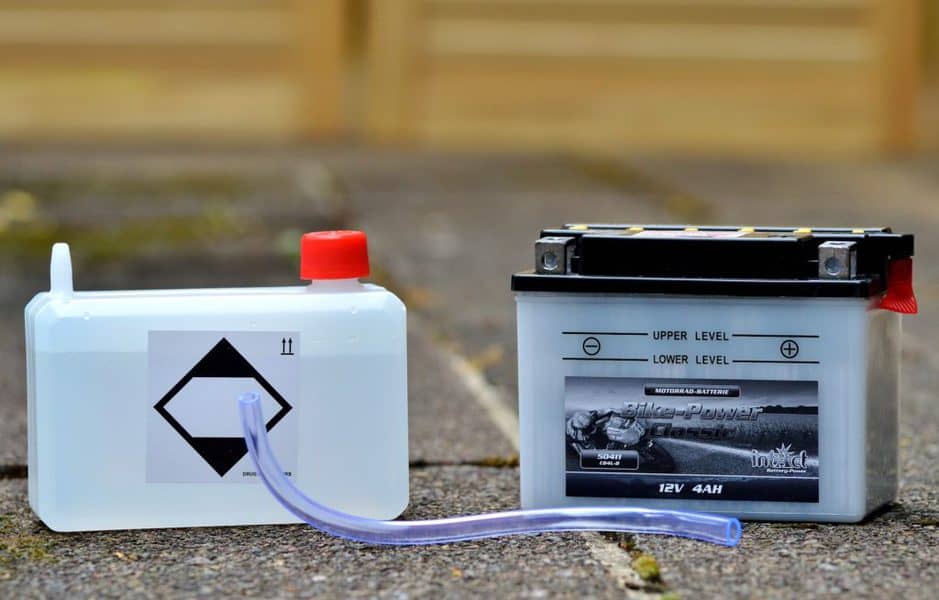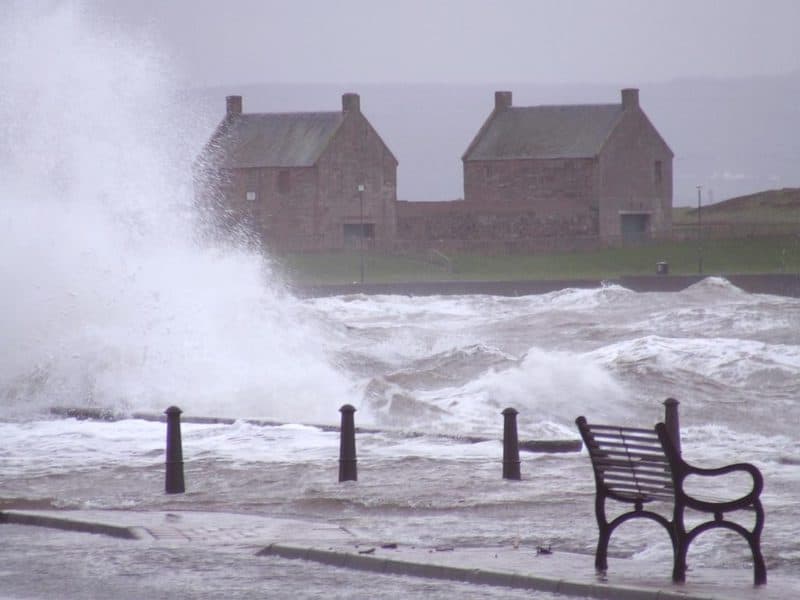
Have you ever bought something from the shop and later realized that it was not what you have expected?
All because you did not even take the chance to inspect the product or just being in a hurry, or be lazy, all reasons whatever they are that causes you to pick the wrong product lies not on the product.
Such an issue is avoidable if you took the right track in the first place. The advancement with technology does bring about ways of refining products with much more efficiency and style.
The quality and efficiency of portable solar panels have improved a lot compared to the last 20 years. There is more competition in the niche of solar energy. The truth is, it is often confusing choosing and picking the right one.
On a side note! If you’re in need of a reliable and high-performance portable solar panel, We strongly recommend the Jackery SolarSaga 100W Portable Solar Panel (Amazon Link).
With a high conversion efficiency and foldable design, this solar panel is easy to transport and set up, making it perfect for outdoor activities like camping, hiking, and RV trips.

The US solar cell technology used in this panel ensures that you get the most efficient and reliable solar charging possible.
There is also a 60W option that is more affordable (Amazon Link)
Not all portable solar panels are suited for one purpose or activity. There are portable solar panels for RVs, backpackers, or just handheld portable solar panels.
Here are 20 tips that you need to know, which will be useful when you go out to choose a portable-solar panel that suits your preference.
Before any of this, check out our article on WHAT CAN A PORTABLE SOLAR PANEL CHARGE? 9 Appliances: AC, Microwave, Fridge, etc
- 1. Is Your Solar Panel Handy ?
- 2. The Type Of Panel
- 3. How Much Room Do You Have For Your Portable Solar Panel?
- 4. Surface Area
- 5. What Devices Will The Portable Solar Panel Used For?
- 6. Size Does Matter
- 7. Look At The Brand Name
- 8. Power Storage (Battery Pack)
- 9. Weight Of The Panels
- 10. Price For Your Portable Solar Panel
- 11. Weather
- 12. Watt Rating
- 13. Internal Battery
- 14. Weather Resistance
- 15. Flexibility
- 16. Semi-Flexible Or Unbending Boards
- 17. Design
- 18. The Best Brands To Choose From
- 19. Where To Buy
- 20. Which Portable Solar Kit Is Right for You?
- Conclusion
1. Is Your Solar Panel Handy ?
You will need to find out how portable your panel is. Can you easily carry it or pack it in your backpack? You need to ask yourself if the product is not a burden to your trip.
Campers and hikers may favor a much lighter and more modest portable solar panel, a Goal Zero Nomad 10, that would be incredible for this case. The Nomad 10 is ideal for recharging:
- Headlamp
- Force banks
- Little USB gadgets
- Cell phones
- Beacon lights
Notwithstanding, if you are on an RV, at that point, a Renogy Solar 100 watts 12 volts monocrystalline would be perfect.
2. The Type Of Panel

Not all solar panels are indistinguishable. There are three types of solar boards that you can choose from them. Monocrystalline is inflexible and heavily built, yet they are additionally firm and are most-efficient. You can likewise locate these in a wide range of shapes.
Polycrystalline panels are like monocrystalline, yet they are blue and somewhat less effective. The last one is the CIGS panels. CIGS is an abbreviation that represents Copper, Indium, Gallium, and Selenide. These panels are adaptable and meager, but they are not as strong.
Another thing to keep in mind, backpackers who intend to heft their solar panels around; need to settle on a significant decision; to fold or unfold.
From the start, a foldable panel may appear to be an ideal decision. It is light-weighted, simple to take with you, and exceptionally helpful. Nonetheless, these panels are less durable and may be changed frequently.
A decision is to get a panel that is the correct size and shape for your requirements. It permits you to pack around it and make an ideal space for the panel. Such panels are more durable, yet you have to handle the issue of weight.
3. How Much Room Do You Have For Your Portable Solar Panel?
Before deciding on your solar panel kit, you need to determine how much room you have to store and carry your portable panel kit. If you are going backpacking with it, you would want to get something much smaller than if you are transporting it by RV or car and only moving it once you reach your destination.
Depending on the amount of room you have, you can get kits that are panels only, panels with integrated batteries, and panels with separate batteries attached. While more watts mean more power, it is likely going to be a large setup.
A lot of people usually get past this section. They only realize when their portable panel does take up space in their Caravan and RVs. Be sure to pick a portable-solar board that is relatively fitting to your loadings.
4. Surface Area

The bigger the solar panel, the more sunlight it gathers, and the quicker it gets charged over to control put away in a battery. A more modest solar panel, however simpler to pack, takes more time to charge a battery.
The large surface area is likewise best for conditions, for example, overcast cover or the low-calculated, low-power light in winter, or when strategic imperatives limit how long you can have it presented to the sun.
Charge times can fluctuate from 4 to 16 hours of sunlight for a similar battery, depending upon surface area and light conditions.
5. What Devices Will The Portable Solar Panel Used For?
Are you going to use the solar panel to recharge your phones, light-up LED bulbs, or power a fridge? If you consider using it to keep your drinks cold, you may use a bigger solar panel with a higher output to harness solar-power for a camping fridge.
Most backpackers and hikers do not always bring heavy appliances while on a trip. Similarly, for lighter appliances such as mobile phones, laptops, power banks, and USB devices, the better option is to go for something smaller but produce electricity more efficiently.
6. Size Does Matter

A couple of individuals say that size doesn’t have any effect. Trust me: they never expected to pull a solar panel around!
If you are climbing or moving outside with a solar panel, you’ll need something more un-obtrusive or, at any rate, foldable. That makes it easy to take with you.
On the off chance that you’re using these panels for other external activities, for instance, parties in the grass or a presentation, larger portable panels may be more good. Additionally, the greater the surface area of the portable solar panel sheets, regularly produces more power.
7. Look At The Brand Name
While a brand name isn’t all that matters, it should assume apart when you’re picking which solar unit you need to purchase. You would prefer not to be out in the wild and discover your portable solar panel is acting up.
At the point when you’re taking a gander at the solar panel, ensure you don’t get tricked by a knock-off brand, much the same as there are knock-off GUCCI totes, there are thump offs of top solar pack marks also.
8. Power Storage (Battery Pack)

A solar energy maker is best used to energize a capacity battery instead of the electronic gadget straightforwardly. Why?
These force sources may not contain any hardware to control the progression of power into your electronic gadget, conceivably prompting harm. Check the manufacturer’s instruction manual; some solar panels offer a managed USB yield for direct charging of little electronic devices.
An integrated storage battery offers across the board; accommodation of a power generator to make power and a battery to store for later energizing use. An independent battery offers the adaptability to leave the generator (e.g., solar panel) at home or headquarters and take just the panel battery.
On the off chance that you are purchasing a solar panel that accompanies a capacity battery, focus on the battery details. It might be the main piece of the bundle.
9. Weight Of The Panels

Picking the right panel generally includes finding the difference between weight and utility. For instance, heavier portable solar panels might be hellfire on your back, they are regularly solid and offer more choice to clients.
For solar panels, size and weight fluctuate. Numerous foldable panels are large and less heavy while, more modest panels (like the Controlled Portable Solar) are stocky and solid.
If you will not take a panel far, or if you’ll be utilizing your vehicle to move it more than halfway, the weight is a non-issue. Else, you’ll need to ensure this additional weight will not back you off during different outside exercises.
Here is a list of 5 x 100W portable solar panels with their respective weights,
- Goal Zero Boulder 100 Briefcase, 100 Watt Monocrystalline Solar Panel (25.9lbs/11.7kg)
- ROCKPALS SP003 100W Foldable Solar Panel (10.8lbs/4.9kg)
- Renogy 100 Watt 12 Volt Monocrystalline Solar Panel (16.5lbs/7.5kg)
- GGX ENERGY 100W Solar Panel Monocrystalline Solar Cell (8.4lbs/3.8kg)
- MEIND 100W 18V Polycrystalline Solar Panel (18.7lbs/8.5kg)
As you can see, they all have the same power output, however; their weights vary accordingly. The fact is that a GGX ENERGY 100W Solar Panel does produce the same power output as the MEIND 100W, except that the GGX ENERGY 100W Solar Panel is 4.7 kg lighter than the MEIND 100W.
10. Price For Your Portable Solar Panel
If you arrange to utilize the panel a couple of times each year, it’s OK to go for something cheap.
Nonetheless, if you’ll be exploring the great outdoors and climbing with it everywhere you go, then consider choosing something somewhat more pleasant.
One evident thought is the cost. Also, the amount you will spend ought to be controlled by how frequently you figure you will utilize the panel.
Costs range from $30 for cheaper panels to more than $1,000 on the top of the line. The ideal decision for your needs is likely somewhere close to these two boundaries.
Here is an article about Portable Solar Panels cost => How Much Do Portable Solar Panels Cost?
11. Weather

Quick inquiry: does it rain a great deal in your area? The appropriate response may direct which portable panel you wind up purchasing.
If it rains regularly, you will need a panel with a higher efficiency rate. All because there might be almost no sunlight, and you’ll require a portable panel that benefits as much as possible from it!
Else, you can pick a panel with a lower productivity rate. Furthermore, this commonly implies you’ll get a good deal of your choice.
In case you’re searching for a quality portable panel from a trustworthy brand, one Zamp’s Solar Charge Packs are an ideal spot to begin.
With 80, 120, 160, and 200-watt models accessible, Zamp has the privilege of measuring portable solar panels for most circumstances. All models are weatherproof and accompanied by a convenient zippered nylon case for ease of transportation.
12. Watt Rating
The next thing to look at is the watt rating of the panel. In general, the watt rating tells you how powerful the portable solar panel is. To find out the wattage you need, you need to figure out the devices and hardware you use with your portable-solar.
For example, a 6W 6V Solar Panel Portable Solar Ac Kit, the bigger they get, the higher the rating. The watt rating itself does not tell you what it will charge. It also comes down to what the output power is. So you need to make sure the output power is high enough to charge your device.
Below is a list of few commonly used appliances with their corresponding wattage ratings,
- Ceiling fan: 10-50W
- DVD Player: 15W
- CB Radio: 5W
- Modem: 7W
- Laptop: 25-100W
- Drill (1/4 inch) 250W
- Toaster Oven 1200W
- Blu-ray Player: 15W
- Tablet Recharge: 8W
- Satellite Dish: 30W
- Cable Box: 35W
- TV – LCD: 150W
- LED Light bulb (40-watt equivalent): 10W
- LCD Monitor: 100W
- Smart Phone Recharge: 6W
- Coffee Machine 1000W
- Fridge (16 cubic feet) 1200W
13. Internal Battery
The Next thing you need to look at is if your solar system has an internal battery or not. If it has an internal battery, it not only means all day you can put it outside, gaining charge, and not having to worry about having your device plugged in. It also means that if there is shading, it won’t interrupt the charging process.
The Mobisun Pro is a light-weighted portable solar panel with an incorporated battery and power converter that conveys power (250W) and direct high voltage (230V) current.
They are considered the first portable solar panel on the smart integration of power conversion and power storage techs.
These panel boards can be-expanded in a particular manner with extra light-weighted solar panels for high speed and pass-through charging.
14. Weather Resistance

The next thing you need to look at is weather resistance. If you are going sailing, or if you’re going to be in lots of incompetent weather, it is wise to have a panel that is weather resistant. Most portable solar panels are weather resistant.
The 20W Solarchip adaptable solar panel has a high transformation rate and superior. The flexible style takes into account; a curve up to 30 degrees so the board can be mounted flush on trains, boats, boats, yachts, trucks, vehicles, mentors, taxis, RVs, tents, trailers, greens, or other sporadic surfaces.
The solar panels adjust to a wide range of climate, downpour or day off, or cold, making flexible solar panels more strong.
15. Flexibility
From the outset, a foldable board may appear to be an ideal decision. It’s lightweight, simple to take with you, and extremely helpful.
However, such panels are less durable and may require substitution all the more frequently. A decision is to get the board that is the correct size and shape for your requirements.
For individuals who plan on taking their portable solar panels around, there is a decision to make: to fold or unfold. Doing so permits you to pack “around” it and make a one of a kind space for the board.
Such boards are durable, yet you’ll have to handle the issue of weight. Semi-flexible or unbending boards:
16. Semi-Flexible Or Unbending Boards

Semi-flexible portable solar boards can be collapsed or rolled up for simple transportation and open up to give a more surface area than many stable portable solar boards.
Consider, as well, the portable-solar panel’s connection alternatives so you can safely join it to your rucksack, bicycle, kayak, or tent.
17. Design
You might want to pick a portable solar panel that has various lock-on features. Most portable solar panels come with straps, handles, grommets, and loops that add to their advantage.
You don’t want your portable panel to fall off while you are riding or while hiking.
18. The Best Brands To Choose From

We have seen a great deal of portable solar panels throughout the long term. Many are Kickstarter projects that neglect to satisfy their expectations.
The best brand products are the ones that have been around for years and have proven themselves through customer experience.
Here is a list of manufacturers you might want to consider saving you time and effort rather than blindly doing your research,
- Goal Zero
- Eco Worthy
- HQST
- Jackery
- Renogy
- Go Power
- Zamp
19. Where To Buy

Once you have decided on your dream portable solar panel, the next question would be, where will you buy it.
There are genuine online sites that sell such products online. Most often, you can find the products listed on the manufacturer’s website. Often they are pricey at these sites. However, if you want quality and efficiency, then you better check out the product from the manufacturer’s website.
You can also purchase your chosen product from genuine sites such as,
- Amazon
- Alibaba
- eBay
- Overstock
- AliExpress
- Etsy
The price range may fluctuate for each site compared to the manufacturer’s website, so be sure to check out the relevant sites before proceeding to your purchase.
20. Which Portable Solar Kit Is Right for You?
Since you have these options, which one is appropriate for you? If you need to be progressing and don’t have much desire to carry around massive solar boards, you should go for the CIGS that are adaptable and lightweight without free batteries.
Likewise, if you have an RV that needs more power, you should get a set up with independent batteries installed. Pick what works and what suits your necessities. Go for a decent-brand, and the power of solar is yours!
Conclusion
Would it be worth it? To check out the tips that best refer you to the best portable solar panels in the market? In the long run, I think it is worth it.
You don’t want to spend a dime on a product that you regret purchasing in the end. A lot of customers bought products based on word of mouth from either their friends or colleagues.
It’s not that bad to say, but it’s worth doing a thorough inspection yourself. Pick what’s best with which you can be proud of it yourself.
Your effort and time are worth it.
